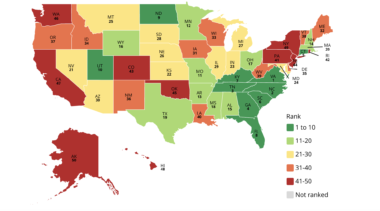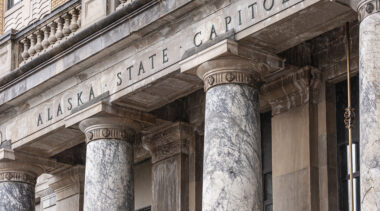-
Refocusing U.S. welfare policy on economic opportunity
This study examines how the welfare system and banking, housing, criminal justice, and labor market regulations reduce and undermine opportunities for low-income Americans.
-
Air traffic control as a public utility
The case for changing the way air traffic control is provided in the United States.
-
Recommendations for the FAA reauthorization bill
Congress should encourage the adoption of space-based ADS-B in air traffic control, the deployment of remote air traffic control towers, and more.
-
Using DBFOM public-private partnerships benefits drivers, states and transportation contractors
Strategic use of design-build-finance-operate-maintain public-private partnerships for major transportation projects considerably expands the total money available for transportation infrastructure.
-
Modernizing psilocybin policy to improve mental health outcomes
Psychedelics have the potential to be more effective than conventional drugs now being used to treat a range of mental health disorders.
-
Modern oral nicotine and tobacco harm reduction
Oral nicotine or nicotine pouches have gained increasing popularity among smokers wishing to switch to a safer form of nicotine.
-
Fiduciary principles need to be reaffirmed and strengthened in public pension plans
"The exclusive purpose of investing pension assets must be to provide pension benefits and defray reasonable expenses—nothing else."
-
Optimal regulatory framework for state regulation of sports betting
To maximize the benefits of sports betting legalization and minimize negative externalities, state regulatory frameworks should encourage robust and competitive markets.
-
Senate Bill 88 would expose Alaska to potentially higher pension costs
Senate Bill 88 would likely cost Alaska more than $8 billion in the coming decades.
-
House Bill 22 and Senate Bill 35 threaten Alaska’s budgets
HB 22 and SB 35 would likely cost Alaska upwards of $800 million in the coming decades.
-
Examining an Alaska pension reform counterfactual
A look at what would have happened to the Public Employee Retirement System and Teacher Retirement System if proposed pension reforms from 2021 had been enacted.
-
The costs and risks of proposed public retirement changes in Alaska
Examining several pieces of proposed legislation impacted public pensions in Alaska.
-
Senate Bill 11 would bring public pension risk back to Alaska
SB 11 would likely cost Alaska $9 billion in the coming decades.
-
Social equity programs in marijuana legalization laws aren’t achieving goals of helping victims of the drug war
State efforts to promote social equity within legal cannabis markets have unintentionally created new versions of the war on drugs.
-
Montana’s default retirement benefit option should best serve most public workers
Montana House Bill 226 would better align the default retirement benefit option with what would best most workers need.
-
Updated Arizona K-12 education finance model with latest school finance and transportation data
The model allows users to test changes to Arizona’s funding formula, see how changes to local property taxes impact funding, and see how potential changes affect the funding of individual school districts and charter schools.
-
Airline deregulation: Past experience and future reforms
The U.S. experience with airline deregulation shows that eliminating government barriers to competition can generate enormous benefits for consumers.

















